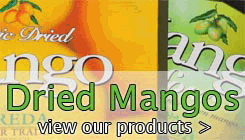It is Fair Trade Week in Europe and hundreds of thousands of customers are committed to buying products that are produced justly and without exploitation and under proper working conditions. As one concerned parent said to me recently, “The one thing I don’t want my child wearing is clothes made with child labour in a filthy sweat shop”. Recently a well-known international brand of clothing was discovered to have its expensive clothes made in a sweat shop in India. The children did the embroidery because they had nimble fingers. Sales of its products dropped like a stone and so too it’s share price. It had failed to carefully monitor the factories where it had out-sourced its manufacturing.
Child labour is rampant across Asia and that is why fair trade criteria are so important. They protect vulnerable women and children from exploitation and abuse. This being the International Women’s Day the start of a month long information campaign that will highlight women’s rights, uncover the exploitation and expose what good things are being done to enhance their dignity and promote their rights. Fair trade is one way to do it.
Some years ago, the world famous brand of sports shoes made in an export zone in Cavite, the Philippines was hit with a boycott of its products when the campaigners against exploitation of poor young female workers in the developing nations and youth across America and Canada boycotted the brand. It took years for the brand to recover.
The criteria of Fair Trade are the guideline for ethical, just and non-exploitative trading. In the Preda Foundation (People’s Recovery Empowerment Development Assistance Foundation) there is a fair trade department that supports dozens of small producer groups making crafts and fine bamboo furniture of all kinds. It supports interest free loans, skilled training, educational assistance and provides access to markets abroad.
Thousands of farmers also benefit from the Preda Fair Trade dried mango and mango puree that Preda promotes. By paying higher prices to the farmers for all kinds of mangoes for drying and processing a price fixing cartel is kept far away. Preda organised the first National Organic Mango Conference last January at its conference center in Olongapo City. The demand for internationally certified organic produce is growing. One German importer told the conference that he could buy 300% more dried mangos if they were certified organic and were fair trade dried mangoes.
According to the International Federation of Fair Trade (IFAT), Fair Trade is a trading partnership based on dialogue, transparency and respect, that seeks greater equity in international trade. It contributes to sustainable development by offering better trading conditions to, and securing the rights of, marginalised producers and workers – especially in the South. Fair Trade organisations (backed by consumers) are actively engaged in supporting producers, awareness raising and in campaigning for changes in the rules and practices of conventional international trade.
From modest beginnings, Fair Trade has developed into a world-wide movement, guaranteeing decent living and working conditions for over one million small scales and marginalised producers and poor workers in developing countries. In Europe, Fair Trade Organisations have pioneered responsible business practices and encouraged consumers to take the social, economic and environmental conditions of their purchasing into account.
So from this we can see that there is huge potential for products that meet the criteria. Recycled products using recycled materials made under the fair trade criteria have been a boon for the bag sewers of the Preda bag making project. The discarded drink pouches are an environmental hazard and being made of aluminum foil, they take years to disintegrate. But the Preda project turns them into fashionable and much sought after products from high quality back packs, fashion purses and wallets to shopping bags. The drinking pouches turned to useful and attractive products have brought prosperity to forty families who make them in their own homes on sewing machines supplied by Preda and then paid for by the sewers interest free. The pouch collectors gain also by collecting the discarded bags and cleaning them for a fair price.
There is money for all in doing business through fair trade. There is no need to exploit people by giving unjust wages and bad conditions; a clean conscience is worth more than a dirty bank account. Fair Trade is all about doing the right thing and giving every worker, especially women, a fair chance and a just wage. END

